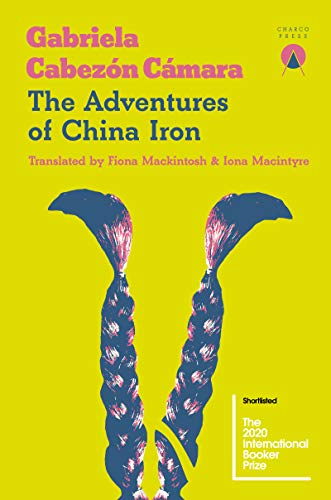
The Adventures Of China Iron PDF
Preview The Adventures Of China Iron
( ** China. Pronounced ‘cheena’: designation for female, from the Quechua. Iron: The English word for Fierro, reference to the gaucho Martín Fierro, from José Hernández’s epic poem. )
Gabriela Cabezón Cámara’s joyful, hallucinatory novel is also an incisive critique of national myths and a requiem for the casualties of ‘progress’. Translated by Fiona Mackintosh and Iona Macintyre.
This is a riotous romp, taking the reader from the turbulent frontier culture of the pampas deep into indigenous territories. It charts the adventures of Mrs China Iron, Martín Fierro’s abandoned wife, in her travels across the pampas in a covered wagon with her new-found friend, soon-to-become lover, a Scottish woman named Liz. Seen from an ox-drawn wagon, the narrative moves through the Argentinian landscape, charting the flora and fauna of the Pampas, Gaucho culture, Argentinian nation-building and British colonial projects.
In a unique, subversive reformulation of Argentina's history and foundational gaucho literary tradition, Gabriela Cabezón Cámara, with humour and sophistication, re-writes Martín Fierro from a feminist, LGBT, postcolonial point of view in celebration of the colour and movement of the living world, the open road, love and sex, and the dream of lasting freedom. She creates a hilarious, hallucinatory novel that is nevertheless incisive in its criticism of the way societies come into being and the way they venerate mythical heroes.
Gabriela Cabezón Cámara was born in Buenos Aires. She is one of the leading figures in Argentinian and Latin American literature and has published the novel Slum Virgin (known in Spanish as La Virgen Cabeza, 2009), the nouvelle Le viste la cara a Dios (You’ve Seen God’s Face, 2011), and La Isla de la Luna (Island of the Moon, 2012).
